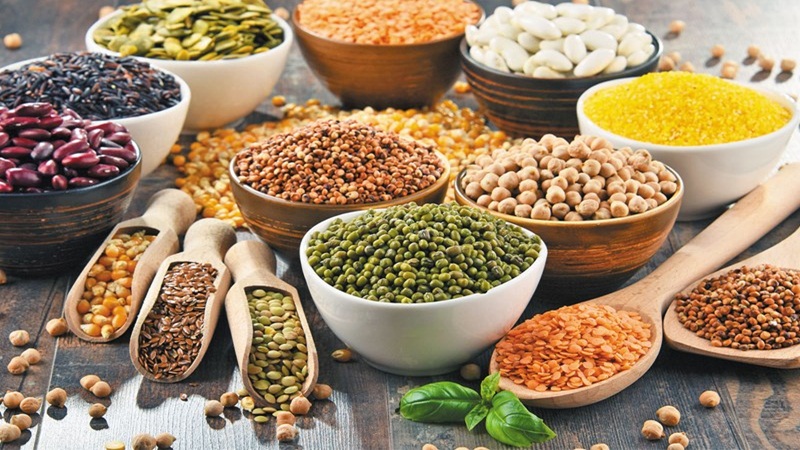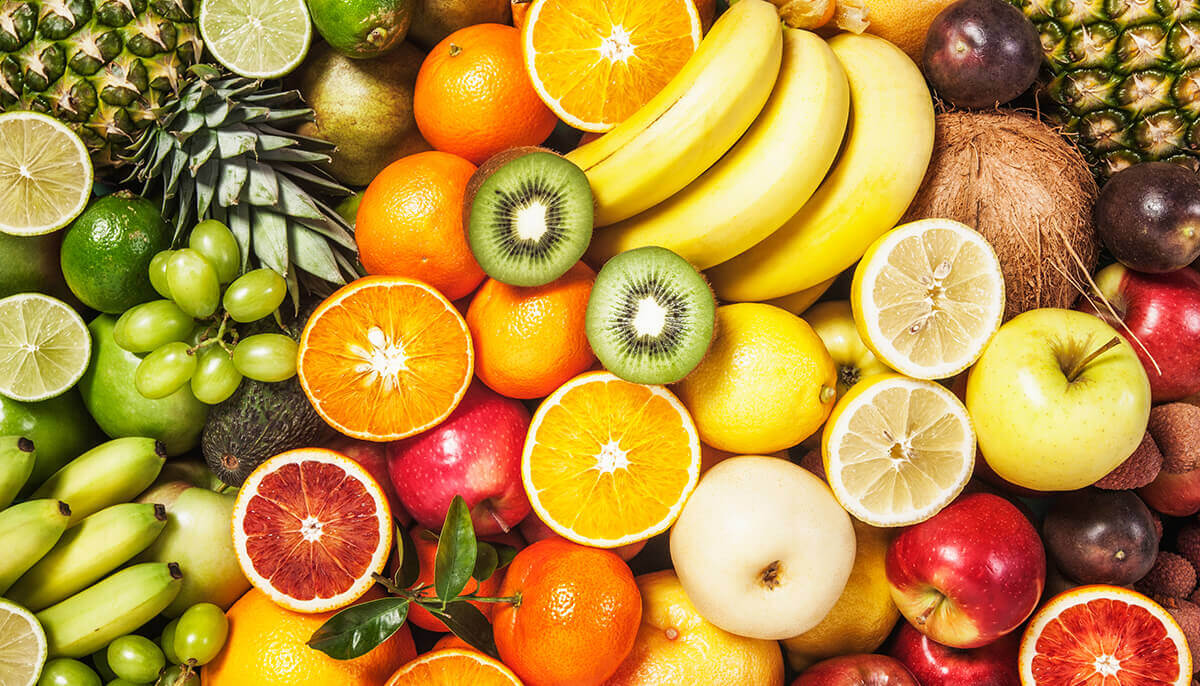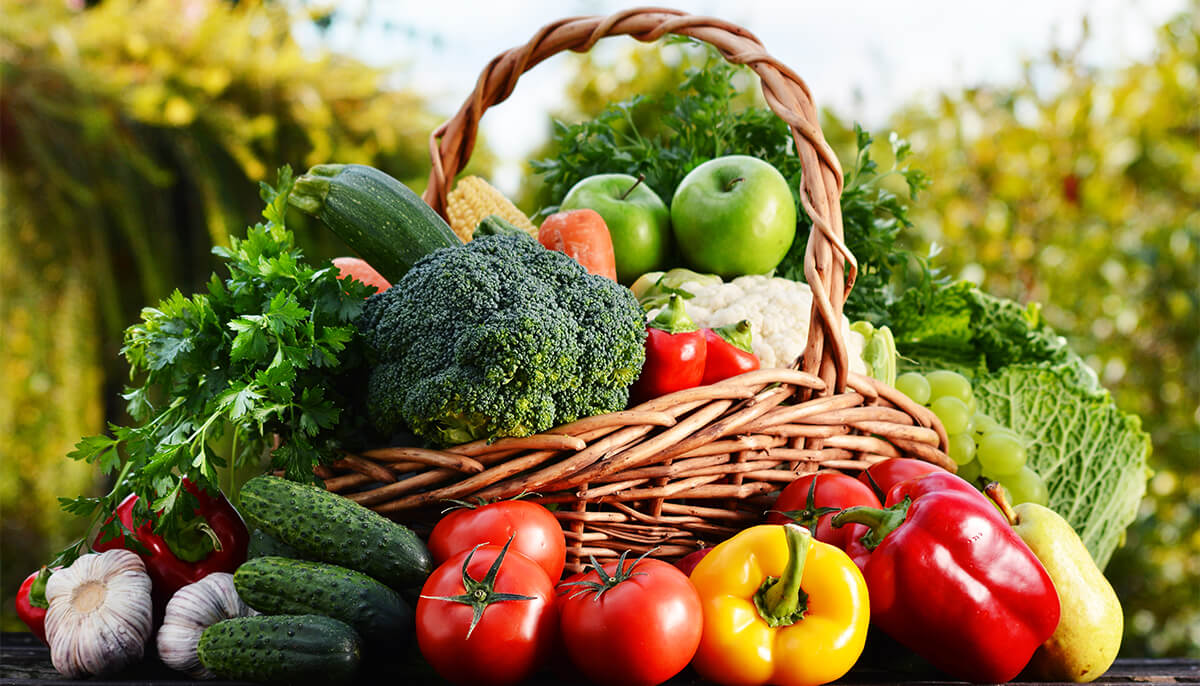Welcome to today's post where we'll be discussing one of the most important aspects of maintaining a healthy body- digestive health. Digestive health is crucial for overall well-being, as it plays a vital role in absorbing nutrients from the food we eat and eliminating waste products from our body.
One of the key factors that can promote digestive health is including high-fiber foods in our diet. A diet rich in fiber can not only aid in digestion but also lower the risk of many chronic diseases like diabetes, heart disease, and even certain cancers.
In this post, we will be exploring the top 7 high-fiber foods that can help you maintain a healthy digestive system. These foods are easily accessible, affordable, and delicious, making them a perfect addition to any diet.
So without further ado, let's dive in and explore these fiber-rich foods that can make a significant difference in your digestive health.
1, Whole grains.
Whole grains are an excellent source of dietary fiber, which can help promote healthy digestion. They contain all parts of the grain, including the bran, germ, and endosperm, which provide important nutrients like B vitamins, iron, and magnesium.
Fiber plays a crucial role in digestive health by adding bulk to stool, which makes it easier to pass through the digestive tract. It can also help regulate bowel movements and prevent constipation. In addition to these benefits, fiber-rich diets have been linked to a reduced risk of many chronic diseases like heart disease, type 2 diabetes, and some types of cancer.
Some common whole grains include oatmeal, quinoa, brown rice, and whole wheat. When choosing whole grains, it's important to look for products that have "whole" listed as the first ingredient on the label. This ensures that you are getting the maximum amount of fiber and nutrients from the grain.
Incorporating whole grains into your diet is easy and delicious. You can swap out refined grains like white bread and pasta for their whole-grain counterparts. You can also experiment with different types of whole grains like quinoa, barley, and bulgur for added variety and flavor. By making these simple changes to your diet, you can reap the many benefits of whole grains for your digestive health and overall well-being.
2, Legumes.
Legumes, such as beans, lentils, and chickpeas, are some of the healthiest foods you can eat. They're packed with fiber, plant-based protein, and many essential nutrients that promote overall health and well-being.
The fiber found in legumes can help regulate bowel movements, prevent constipation, and support healthy digestion. The resistant starch found in legumes acts as a prebiotic, which means it can feed the good bacteria in your gut, promoting a healthy balance of microorganisms in your digestive system.
In addition to their digestive benefits, legumes are also low in fat and high in complex carbohydrates, making them an excellent food for weight management and blood sugar control. They're also a rich source of iron, zinc, and other essential vitamins and minerals.
There are many ways to incorporate legumes into your diet. You can add them to soups, salads, or stews or use them as a protein source in vegetarian dishes. You can also make a bean dip or hummus by pureeing cooked beans with spices and olive oil. The possibilities are endless!
Overall, legumes are a versatile and nutritious food that can provide many benefits for your digestive health and overall well-being. So, next time you're at the grocery store, be sure to pick up some legumes and start incorporating them into your meals.
3, Fruits.
Fruits are an excellent source of fiber and many essential nutrients that promote healthy digestion and overall health.
Fiber found in fruits can help regulate bowel movements, prevent constipation, and keep your digestive system healthy. They also contain antioxidants, which are compounds that protect against cell damage caused by harmful molecules called free radicals. Antioxidants may help reduce the risk of chronic diseases like cancer, heart disease, and Alzheimer's disease.
Fruits are also naturally low in fat, sodium, and calories, making them an excellent choice for those looking to maintain a healthy weight or manage their blood sugar levels. Plus, they are a delicious and convenient snack that can be eaten on their own or added to smoothies, salads, or yogurt bowls.
Some of the best fruits for digestive health include apples, pears, berries, oranges, and bananas. These fruits are all high in fiber and packed with other essential vitamins and minerals like vitamin C, potassium, and folate.
To incorporate more fruits into your diet, try adding them to your breakfast by topping your oatmeal or yogurt with sliced fruit. You can also snack on them throughout the day or add them to salads and smoothies for a delicious and healthy meal.
In conclusion, incorporating fruits into your diet can provide many benefits for your digestive health and overall well-being. So, the next time you're at the grocery store, be sure to stock up on a variety of fruits to enjoy as part of a healthy and balanced diet.
4, Vegetables.
Vegetables are an essential part of a healthy diet and provide many benefits for digestive health and overall well-being.
Vegetables are an excellent source of dietary fiber, which plays a crucial role in digestive health. It adds bulk to stool, helps regulate bowel movements, and supports the growth of beneficial bacteria in your gut. Additionally, many vegetables contain prebiotics, which are compounds that promote the growth of good bacteria in your digestive system, further supporting digestive health.
In addition to fiber and prebiotics, vegetables are also rich in many essential vitamins and minerals, such as vitamins A and C, potassium, and magnesium. These nutrients are essential for overall health and well-being and can help reduce the risk of chronic diseases like cancer, heart disease, and diabetes.
Some of the best vegetables for digestive health include broccoli, spinach, carrots, sweet potatoes, and Brussels sprouts. These vegetables are all high in fiber, prebiotics, and essential nutrients that support digestive health.
Incorporating more vegetables into your diet is easy and delicious. You can add them to salads, stir-fries, or soups, or enjoy them roasted or steamed as a side dish. Try experimenting with different vegetables to add variety to your meals and reap the many benefits of these nutritious foods.
In conclusion, vegetables are an essential part of a healthy and balanced diet that can provide many benefits for digestive health and overall well-being. So, make sure to add a variety of colorful vegetables to your meals to support your digestive system and promote optimal health.
5, Nuts and seeds.
Nuts and seeds are a great addition to any healthy diet, and they can provide many benefits for digestive health and overall well-being.
Nuts and seeds are a rich source of dietary fiber, which can help regulate bowel movements, promote satiety, and support the growth of beneficial bacteria in your gut. Additionally, they contain healthy fats, including omega-3 fatty acids, that can help reduce inflammation and improve heart health.
Moreover, nuts and seeds are packed with other essential nutrients like vitamin E, magnesium, and zinc. Vitamin E is a powerful antioxidant that can help protect against cell damage, while magnesium is essential for healthy nerve and muscle function. Zinc is important for maintaining a healthy immune system.
Some of the best nuts and seeds for digestive health include almonds, chia seeds, and flaxseeds. Almonds are a great source of fiber, protein, and vitamin E, while chia seeds and flaxseeds are rich in fiber, healthy fats, and omega-3 fatty acids.
Incorporating nuts and seeds into your diet is easy and delicious. You can snack on them throughout the day, sprinkle them on top of salads or yogurt bowls, or use them to make homemade granola or trail mix.
In conclusion, nuts and seeds are a nutritious and delicious addition to any healthy diet that can provide many benefits for digestive health and overall well-being. So, make sure to include a variety of nuts and seeds in your meals and snacks to support your digestive system and promote optimal health.
6, Whole-grain bread.
Choosing whole-grain bread over white bread is an easy and effective way to increase your fiber intake and support digestive health.
Whole-grain bread is made from whole grains like whole wheat, rye, and oats, which provide more fiber, vitamins, and minerals than refined grains. Fiber plays an essential role in digestive health by adding bulk to stool, regulating bowel movements, and feeding the good bacteria in your gut.
When selecting whole-grain bread, look for options that list whole grains as the first ingredient. This indicates that the bread is made primarily from whole grains and contains more fiber and other nutrients than bread made from refined grains.
Incorporating whole-grain bread into your diet is easy and versatile. You can use it to make sandwiches, toast it for breakfast, or serve it alongside soup or salad. You can also experiment with different types of whole-grain bread, like whole wheat, rye, or sourdough, to add variety to your meals.
In conclusion, choosing whole-grain bread over white bread is a simple and effective way to increase your fiber intake and support digestive health. So, make sure to add whole-grain bread to your shopping list and enjoy its many benefits for your digestive system and overall well-being.
7, Berries.
Berries are a delicious and nutritious addition to any healthy diet and are particularly beneficial for digestive health.
Berries like raspberries, blackberries, and strawberries are high in fiber, which can help regulate bowel movements, promote satiety, and support the growth of beneficial bacteria in your gut. They also contain antioxidants, including anthocyanins, which can protect against cell damage and reduce inflammation in the body.
Incorporating berries into your diet is easy and delicious. You can eat them as a snack or add them to yogurt, oatmeal, or smoothies for an extra boost of fiber and nutrients. You can also use them to make homemade jams or baked goods.
One great way to enjoy the benefits of berries is to incorporate them into a fruit salad. Combine a variety of berries, like strawberries, blueberries, and raspberries, with other fruits like chopped apples or grapes for a colorful and nutrient-packed snack or dessert.
In conclusion, berries are a delicious and nutritious addition to any healthy diet that can provide many benefits for digestive health and overall well-being. So, make sure to include a variety of berries in your meals and snacks to support your digestive system and promote optimal health.
There you have it, the top 7 high-fiber foods for digestive health. By incorporating these fiber-rich foods into your diet, you can support your digestive system and improve your overall health.
Remember, it's essential to make gradual changes to your diet and lifestyle to achieve long-term benefits. Start by adding one or two of these high-fiber foods to your meals and gradually increase the amount over time.
We hope this post has provided you with valuable insights on the importance of fiber in promoting digestive health. If you enjoyed this post, please give it a thumbs up, and don't forget to subscribe to our channel for more informative content.






Comments
Post a Comment